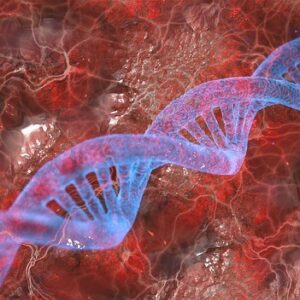Coordinating medical care can be complex, especially when you are older. If you are dealing with a health condition like cancer, you might be wondering: how long can/will I live? Would treatment impact my quality-of-life? What should I do next? Typically, doctors can assist with these decisions by taking into account demographics, comorbidities, and how well someone is functioning – though putting this data altogether can sometimes be challenging.
Healio reports that the Veterans Health Administration has leveraged a special tool called the Care Assessment Need (CAN) score in identifying the risk of hospitalization and death in veterans. By identifying the potential and estimated life expectancy for a veteran, this tool allows physicians to hold conversations with veterans about their outcomes and whether treatment should be pursued.
This CAN score was evaluated in veterans with basal cell carcinoma, a slow-growing skin cancer. Within the study, published in the Journal of the American Academy of Dermatology, researchers explored how well the CAN score could predict 1-year, 3-year, and 5-year mortality rates in veterans living with basal cell carcinoma. The study included 54,744 veterans who received treatment for their basal cell carcinoma over a 5-year period. Using the veterans’ electronic health records (EHRs), the tool scanned the entirety of their medical history and provided risk scores. The higher the score, the higher the risk.
Researchers found that the CAN score was extremely effective in predicting mortality rates, with positive predictive values for a CAN score of 90 at 11.7%, 55%, and 87.2% respectively. The tool could also assess frailty, which is important to consider in planning medical procedures.
Ultimately, by highlighting overall health, predicted outcomes, and the risk-benefit of undergoing procedures, the researchers believe that the CAN score can be an incredibly beneficial tool for physicians treating veterans.
What You Should Know: Basal Cell Carcinoma (BCC)
As described above, basal cell carcinoma is a form of skin cancer. It is considered the most common form of skin cancer, with the Skin Cancer Foundation estimating that 3.6 million cases are diagnosed each year. The cancer manifests in the basal cells, one of the types of cells on the top layer of the skin. Normally, basal cells replace old, dying cells with new ones. Basal cell carcinoma is believed to be caused by excessive UV ray exposure, with risk factors including radiation therapy, increasing age, fair skin, immunosuppressants, and a family history of skin cancer. While this cancer may form in areas of the body without high sun exposure, it more often occurs in areas exposed to the sun like the head, neck, and face. Treatment often includes surgery but may also require curettage and electrodesiccation, radiation, topical treatments, and photodynamic therapy.
Basal cell carcinoma often appears as a shiny skin-colored bump that may bleed and scab; a waxy white lesion with no defined border; a scaly flat patch with a raised edge that seems to grow in size; or a brown, black, or blue lesion with a slightly raised, translucent border.








